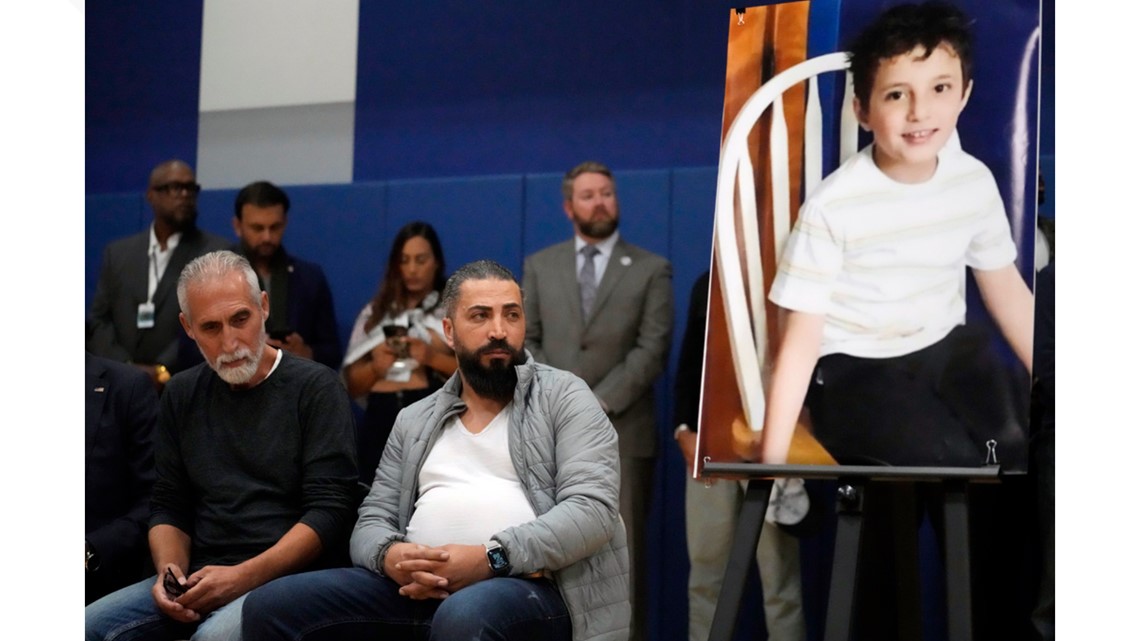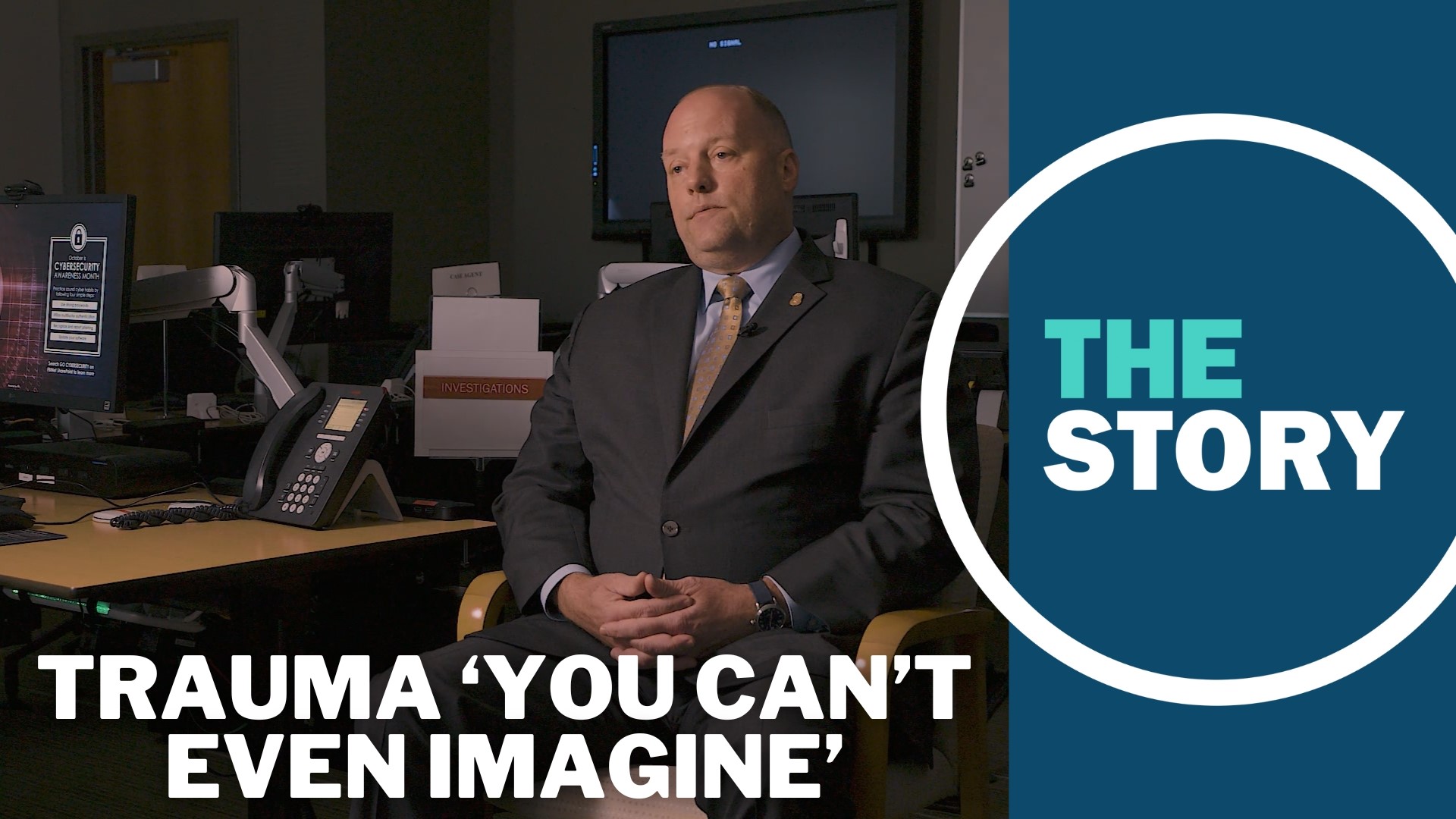PORTLAND, Ore. — As war rages between Israel and Hamas in the Middle East, it's stirring up vitriol the world over. As a result, both the Jewish and Muslim communities in Oregon are more vulnerable and subject to threats. Often, it's the FBI's job to investigate whether any of those threats are credible — and whether they are or not, to track down the source.
The FBI's Special Agent in Charge for Oregon, Kieran Ramsey, also has extensive experience in international hostage rescue, which may provide some insight into what the U.S. government is doing right now to free the hostages taken by Hamas during the group's inciting strike into Israel on Oct. 7.
First, Ramsey acknowledged that they are getting reports of threats to both Jewish and Muslim communities.
"Obviously, both communities are extremely concerned, and they have good reason to be," Ramsey said. "But as I sit here right now, we have no specific or credible threats against anybody here in the state of Oregon. But that doesn't mean that we're not on a higher state of vigilance right now, admittedly."
The key, according to Ramsey, is to make sure that the FBI isn't getting surprised by anything in Oregon, which means looking for any potentially violent extremists of any persuasion here at home who may be thinking of taking action because of what's happening halfway around the world.


"Perhaps there are violent extremists out there — and we know there are — around the world, that are taking seriously this call to action by Hamas and al-Qaeda and Hezbollah," Ramsey said. "At the same time, we're concerned about violent extremists here in the U.S. that out of racist hatred would seek to go against another community here because of their religious beliefs. So we're making sure we're really going through our own active investigations, that we're taking a second, third and fourth look at any kind of threats that come in to us ... and then just doing a ton of community outreach."
Ramsey encouraged anyone who receives a threat to call either the local police or the FBI. When threats do come in, the FBI works to identify the person who made them and determine if they have any capability of carrying them out. Even if they don't, it's possible they will be charged with a state or federal crime.
Dipping into data
One of the intelligence tools being used is a law that allows the feds to scoop up vast amounts of electronic communications between foreigners overseas, in Gaza and elsewhere. U.S. intelligence agencies can do that without a warrant, thanks to a law called the Foreign Intelligence Surveillance Act, or FISA. Specifically, Ramsey referenced FISA Section 702, which was a 2008 addition to the 1978 law.
"FISA 702 is one of many," Ramsey said, "but it's a critical, vital national tool that we talk about all the time these days in terms of making it our ability to leverage intelligence that's collected overseas on foreign bad guys, so that can help shape our picture of what we know. In this case, it's hostages — in other cases, it's whatever the issue is. But it's a vital tool and it does become very important, especially in a crisis like this."
Congress passed Section 702 in the wake of the 9/11 terror attacks on the U.S. It allows intelligence agencies to share information with the FBI when they learn about crimes planned in America, even if they're not terror-related — that could include a bank robbery, for example.
Ramsey said that Section 702 has also been used to warn Oregon companies that someone overseas is planning a cyberattack on them, or that the cyberattack is just beginning. That part of the law expires at the end of this year, and it's unclear if Congress will extend it or not.
Critics point to abuses of the 702 databases. NBC News reported this past May that the FBI wrongly looked up information in the 702 database, accessing information about Americans and others 278,000 times. Those inquiries focused on people arrested at protests connected to the death of George Floyd, after the Jan. 6 Capitol riot, and even people who donated to a particular political campaign. Those happened in 2020 and 2021, and the FBI claims it has significantly tightened access to the 702 database since then.
Hostage recovery
During his last posting in Washington, D.C., Ramsey was director of something called the Hostage Recovery Fusion Cell. In essence, he said, it's a giant government task force that brings together every agency you can think of to rescue American hostages overseas. As a result, Ramsey has a deep understanding of what's going on right now behind the scenes.
"It starts with intelligence, right?" Ramsey explained. "When I talk about leveraging everything we can in the U.S. government — we leverage our state department, our diplomats to determine if we can get additional information from our friendly foreign partners.
"We leverage our entire U.S. intelligence community to see if we can gain any intelligence from what's being collected overseas, either in that specific area where we believe they either went missing or believe being held or anywhere else in the world, quite honestly. We leverage friendly foreign countries and foreign partners that are perhaps outside of government that have a vested interest in making sure these innocent people don't meet a horrible fate."


Ramsey said that if the American hostages taken by Hamas can be found, the U.S. government will try to communicate with the people holding them, then ask for proof that the hostages are still alive.
"But with all that being said, again: every minute, every hour, every day that goes by, that hostage's safety, the jeopardy that they're in continually increases," Ramsey said. "And the trauma that's being experienced by those families and those loved ones is — you can't even imagine."
When he said that the level of jeopardy for the hostages increases over time, Ramsey meant that hostage-takers can begin to lose patience in getting their demands met, particularly terrorist organizations.
"Let's go back to the fact that they're in an active war zone," he added. "There are a lot of variables that no one can control except those holding those hostages. And they don't play by the same rules that anybody else does. So when you think about the length of time they're being held, it's just a frightening, frightening scenario."
The New York Times reports that the U.S. is working with Qatar, a tiny oil-rich nation on the Persian Gulf with extensive ties to militant groups. It's serving as a mediator between Hamas and the U.S. as diplomats seek to see those hostages returned safely.

